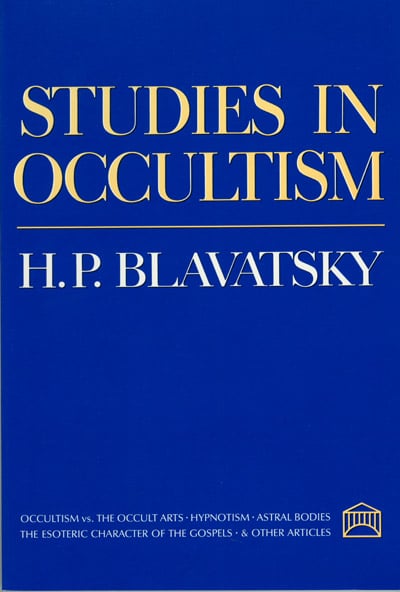Studies in Occultism
What is Occultism?
The term OCCULT has noble but largely forgotten origins. Derived from the Latin occultus meaning “hidden,” it properly defines anything which is undisclosed, concealed, or not easily perceived. Early theologians, for example, spoke of “the occult judgments of God,” while “occult philosopher” was a designation for the pre-Renaissance scientist who sought the unseen causes regulating nature’s phenomena. In astronomy, the term is still used when one stellar body occults another by passing in front of it, temporarily hiding it from view.
Writing a century ago, when the word had not acquired today’s mixed connotations, H.P.Blavatsky defined OCCULTISM as “altruism pure and simple” – the divine wisdom or hidden theosophy within all religions. Occultism is founded on the principle that Divinity is concealed – transcendent yet immanent – within every living being. As a spiritual discipline occultism is the renunciation of selfishness; it is the “still small path” which leads to wisdom, to the right discrimination between good and evil, and the practice of altruism
Contents:
1. Practical Occultism
2. Occultism versus the Occult Arts
3. The Blessings of Publicity
4. Hypnotism
5. Black Magic in Science
6. The Signs of the Times
7. Psychic and Noetic Action
8. Kosmic Mind
9. The Dual Aspect of Wisdom
10. The Esoteric Character of the Gospels
11. Astral Bodies, or Doppelgängers
12. Constitution of the Inner Man
Extra informatie
| Gewicht | 274 G |
|---|---|
| Afmetingen | 197 × 135 × 15 mm |
| Schrijver | Blavatsky, H.P. |
| Uitgave | Paperback |
| Pagina's | 218 |
| ISBN | 09-911500-09-X |
| Taal | English |
| Uitgeverij | Theosophical University Press |

